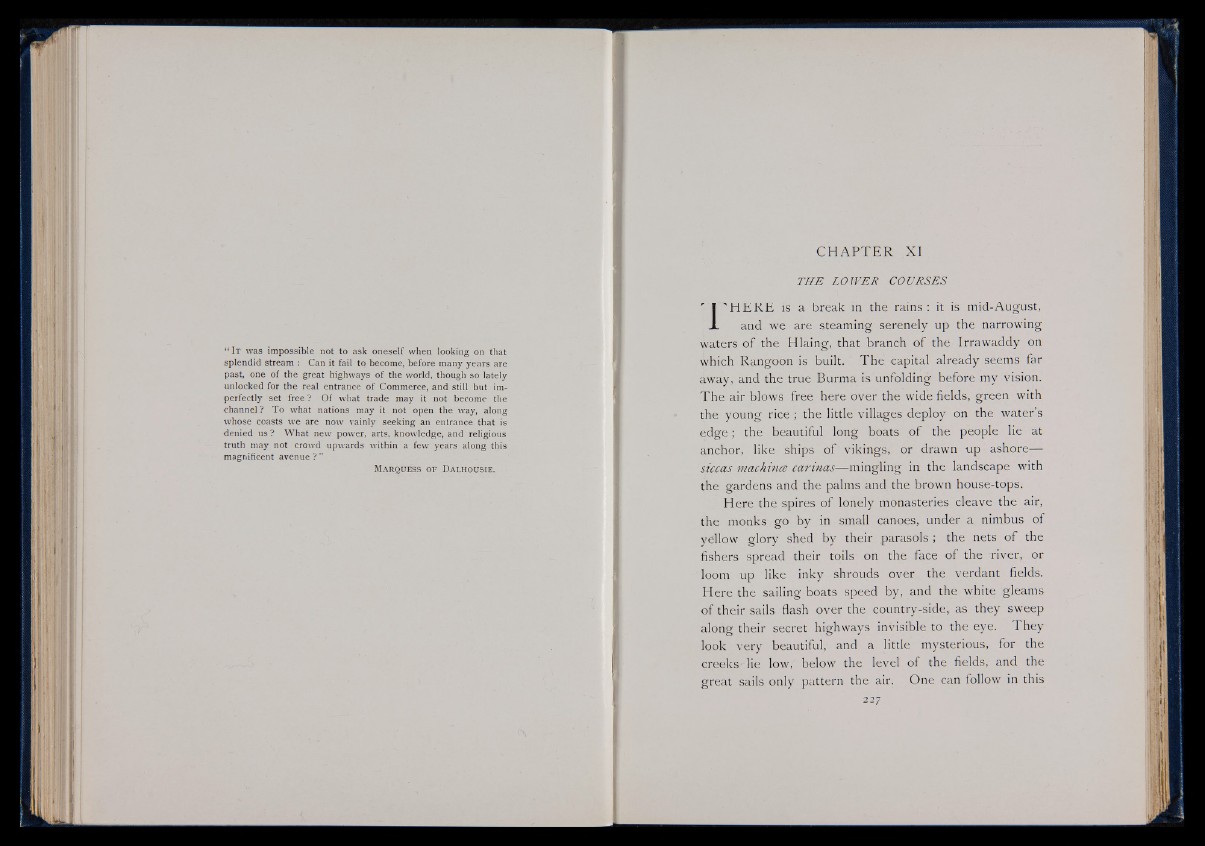
“ It was impossible not to ask oneself when looking on that
splendid stream : Can it fail to become, before many years are
past, one of the great highways of the world, though so lately
unlocked for the real entrance of Commerce, and still but imperfectly
set free ? Of what trade may it not become the
channel? To what nations may it not open the way, along
whose coasts we are now vainly seeking an entrance that is
denied us ? What new power, arts, knowledge, and religious
truth may not crowd upwards within a few years along this
magnificent avenue ? ”
Ma r q u e s s of Da lh o u s ie .
CH A P T E R XI
T H E L O W E R C O U R S E S
TH ERE is a break in the rains: it is mid-August,
and we are steaming serenely up the narrowing
waters of the Hlaing, that branch of the Irrawaddy on
which Rangoon is built. The capital already seems far
away, and the true Burma is unfolding before my vision.
The air blows free here over the wide fields, green with
the young rice ; the little villages deploy on the water’s
edge; the beautiful long boats of the people lie at
anchor, like ships of vikings, or drawn up ashore-ii
siccas machines carinas— mingling in the landscape with
the gardens and the palms and the brown house-tops.
Here the spires of lonely monasteries cleave the air,
the monks go by in small canoes, under a nimbus of
yellow glory shed by their parasols ; the nets of the
fishers spread their toils on the face of the river, or
loom up like inky shrouds over the verdant fields.
Here the sailing boats speed by, and the white gleams
of their sails flash over the country-side, as they sweep
along their secret highways invisible to the eye. They
look very beautiful,' and a little mysterious, for the
creeks- lie low, below the level of the fields, and the
great sails only pattern the air. One can follow in this
227
1
I f
■1,1
I
mm f,